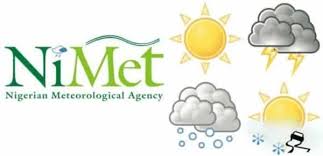
Adults 65, immunocompromised individuals require vaccination against pneumonia – Geriatricians
Geriatricians and other experts in respiratory medicine have advised Nigerians over 65 years old, especially those with weakened immune systems to get vaccinated as a preventive measure against pneumonia.
Speaking in different interviews, they said many diseases can weaken the immune system, making it less able to fight off Streptococcus pneumonia, the bacterium that causes pneumonia, hence the need for vaccination.
According to a Consultant Family Physician and Geriatrician at the Lagos State University Teaching Hospital, Dr. Oduniyi Oludaisi, pneumococcal vaccines are not only for children under five but for adults of all ages.
He said the vaccine is available for adults and that they should get vaccinated, noting that one shot can last them for five years, especially those with lung diseases such as asthma, chronic obstructive pulmonary disease, tuberculosis, and among others.
Oludaisi, who is also the Head of the Geriatric Unit, Department of Family Medicine, LASUTH, said, “The pneumococcal vaccines prevent pneumococcus bacterial infections. These bacteria can cause ear infections, strep throat, pneumonia, meningitis and more.”
He noted that the vaccine helps the body to produce antibodies to protect and defend the body against these bacteria.
“Those who have influenza vaccine can also take it because influenza has been described as the major cause of pneumonia and this will also prevent it. Common tests by physicians such as chest examination and sputum will help to detect any lung disease. We need to create awareness of the need for adult vaccination.
“Pneumococcal vaccine can cover most variants of lung diseases and I encourage adults from 18 and above and those that have chronic conditions, like hypertension, diabetes, and any form of lung disease to get vaccinated. It is also cheap as the vaccine which costs N15,000, will last them for five years.
“This will help to prevent any pneumonia complication that would make them spend days in the hospital. The vaccination is meant to be repeated after five years.”
According to the World Health Organisation, There are two types of pneumococcal vaccines: conjugate vaccines and polysaccharide vaccines, and they are given by injection either into a muscle or just under the skin.
The WHO recommends the use of the conjugate vaccine in routine immunisations given to children.
“This includes those with HIV/AIDS. The recommended three or four doses are between 71 and 93 per cent effective at preventing severe pneumococcal disease. The polysaccharide vaccines, while effective in healthy adults, are not effective in children less than two years old or those with poor immune function.
“These vaccines are generally safe. With the conjugate vaccine, about 10 per cent of babies develop redness at the site of injection, fever, or change in sleep. Severe allergies are very rare,” WHO stated.
Speaking further on importance of pneumococcal vaccines, a Senior Resident Doctor at the Respiratory Unit of LASUTH, Dr. Temitope Fapohunda, said vaccination is important for adults, and not only children.
“We are emphasising on the need for adult vaccination. Although the pneumonia vaccine can’t prevent all cases, it can lower your chances of catching the disease. And if you have had the shot and you do get pneumonia anyway, you will probably have a much milder case.
“Older adults and some people with health problems are more likely to get pneumonia, a lung infection that makes it harder to breathe. It’s more common among people whose immune systems are weak.
“As you age, your immune system will not work as well as it used to. You are more likely to have trouble fighting off a pneumonia infection. All adults over age 65 should get the vaccine.”





